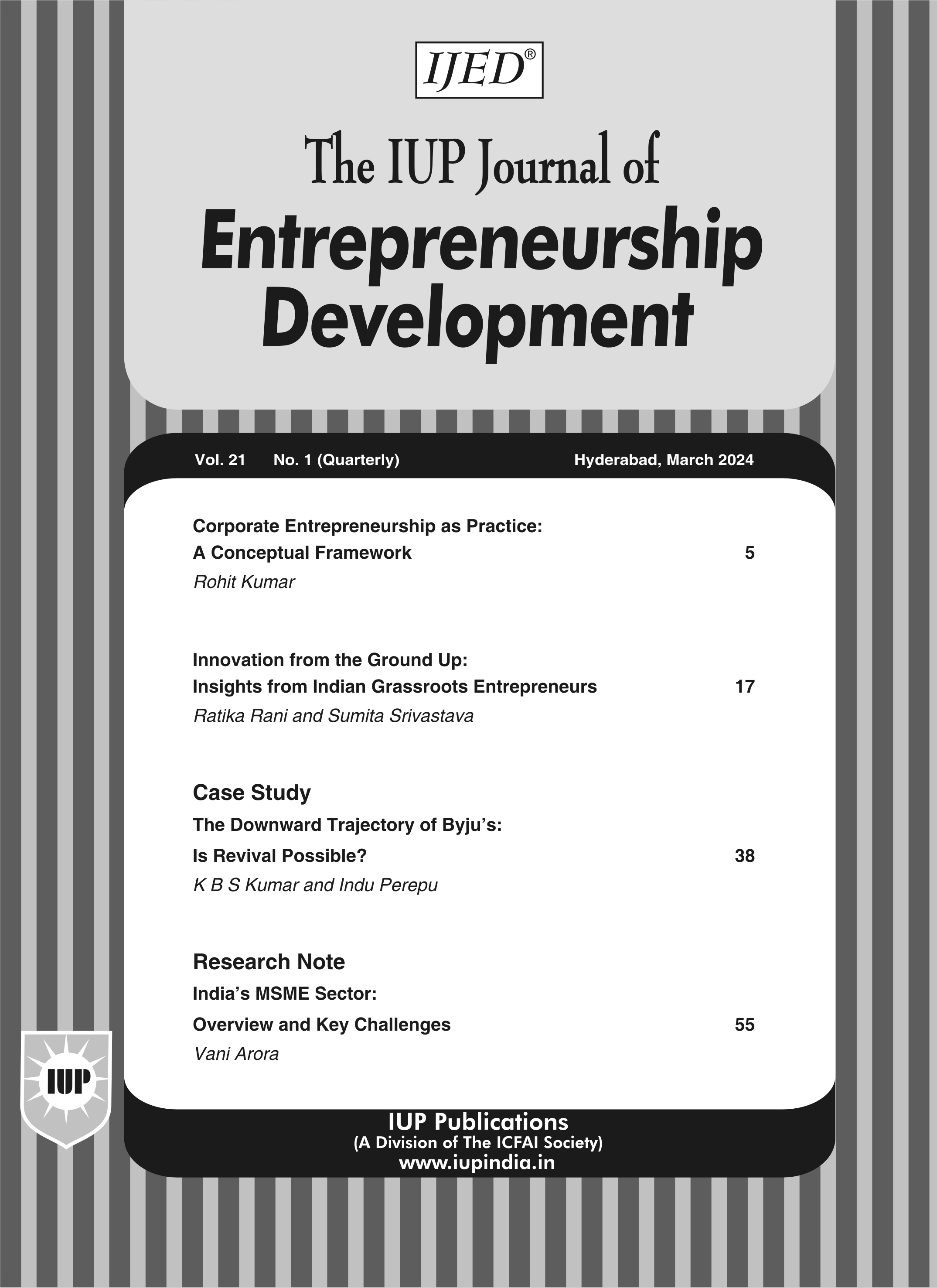
Mar '23
The IUP Journal of Entrepreneurship Development
Archives
Antecedents of Entrepreneurial Willingness Among University Students: An Empirical Study
Entrepreneurship is a powerful tool to reduce unemployment. Hence, educational institutions run many entrepreneurial programs and students too participate in them, which in turn enhance their employability. The study investigates the entrepreneurial willingness of university students across all streams. It particularly analyzes the willingness of 218 respondents on the basis of gender, field of study and family background, using independent sample t-test (2 dependent groups) and one-way ANOVA, Welch test and post-hoc and parametric test. The findings show that female students have a stronger willingness to take up entrepreneurship compared to male students. As far as education streams are concerned, it is found that commerce students have higher entrepreneurial willingness in comparison to others. Family business ownership also has a positive influence on students' willingness to take up entrepreneurship. FullArticle...
Dynamics of Leadership Roles and Practices in Global Entrepreneurship Sustainability
Excellent management is often methodical and conservative. Therefore, effective leadership is always required to drive entrepreneurship sustainability. Leaders play primary and accessory roles. The primary roles include the leader's role as a visionary and planner, while the accessory roles include that of being a role model because of his position in the organization. A leader needs to guide the corporation on strategic goals and targets and be involved in short and long-term planning in the organization. There will always be the need to delegate duties where possible, and as far down the organizational hierarchy as practicable, consistent with ability and competence. Sustainability can thrive more through effective management education, training and development so as to create knowledge-based entrepreneurship culture as a foundation for a learning organization. Creating a learning organization is a global imperative because, ultimately, the leaders of the future require four important traits. They need to master internal markets and have a keen sense of external markets; they need to have a great relationship with people, a sound idea of ICTs, and a good understanding of how to perform exceptionally everywhere in the world. The study recommends that management succession planning driven by leadership must become a strategic game changer for global entrepreneurship sustainability. FullArticle...
Case Study
ServiceNow: From Startup to World's Most Innovative Company
On May 29, 2018, Forbes magazine placed ServiceNow first on its annual list of the World's Most Innovative Companies. It was the very first year ServiceNow had become eligible for the list. ServiceNow, a cloud-based software company based in Santa Clara, California, assists corporate Information Technology (IT) departments to build internal applications. It also helps customers to automate non-revenue generating functions, including human resources, legal, finance security, and facilities management. The case talks about the entrepreneurial journey of Fred Luddy in founding ServiceNow. It then sets out to describe how the company managed growth throughout the years under successive CEOs (Frank Slootman and John Donahoe). The case also explores the company's innovative business model. The various innovative aspects of ServiceNow, which paved the way for its eventual success, are also explained in detail. The case ends with a discussion on whether ServiceNow will be able to continue its growth momentum without compromising on innovation under another new CEO, Bill McDermott. FullArticle...